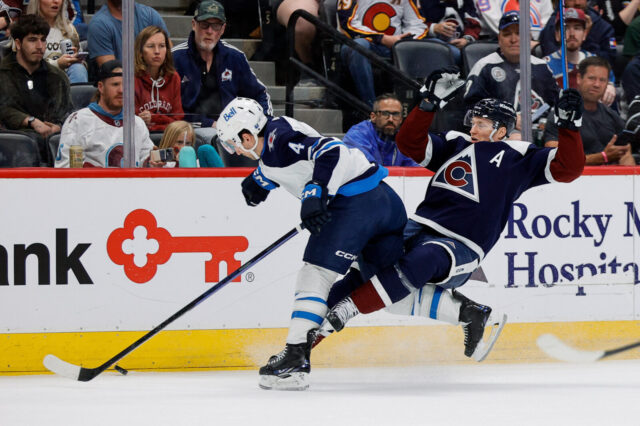The NHL and its Players’ Association announced Sunday that they have agreed to a format to commence the 2020-21 NHL season on Jan. 13. The season will include an ample amount of temporary changes including a shortened but accelerated schedule, realignment, and a tweak to the current playoff format.
Here’s a numbers guide to the 2021 season, and what Avalanche fans should know going into the new year as the Avs make a push for their third Stanley Cup.
0: The number of fans Ball Arena will allow at home games at the start of the season. The Avalanche announced Monday that there will no fans permitted, at least for the foreseeable future, as the local, state and federal governments continue to combat the COVID-19 pandemic.
4: The number of divisions in the NHL’s one-year realignment. This is the same in a traditional year but in 2021, the NHL will not have any conferences associated with divisions. Each division will operate on its own and teams within a division will play only amongst each other.
5: Avs coach Jared Bednar enters his fifth season behind the bench. In his first four years, Bednar has helped the Avs qualify for the playoffs three times and reach the Western Conference semi finals the last two.
6: The maximum amount of players the NHL will allow each team to carry on its “taxi squad.” This one-year change will give teams an opportunity to carry between four and six additional players on top of their main roster without counting against the salary cap. The taxi squad will be used in a situation where a team has last-minute COVID-19 exposures or positive cases that keep a number of its players from dressing on any given night. The taxi squad will also help teams alleviate injuries that will likely occur more commonly in an accelerated season. Each team is required to carry a goaltender on its taxi squad unless it carries three on its traditional 23-man roster.
7: The number of teams that will join the Avalanche in the new West division. Colorado is joined by traditional divisional foes St. Louis, Minnesota and Arizona (which will join the Central Division in 2021 after the Seattle expansion) along with San Jose, Anaheim, Los Angeles and Vegas.
8: The number of times Colorado will play each of its divisional opponents in the regular season. Teams will not play any games outside of their division, meaning Colorado’s full regular season will only be played against the seven other teams in the West division. The playoffs will also be played within the division for the first two rounds. This means the Avalanche’s road to the conference finals is between 64 and 70 games against West division teams.
25: The Avalanche enters their 25th anniversary this season.
26: The number of days between the trade deadline (Apr. 12) and the end of the regular season (May. 8).
29: The maximum roster size the Avalanche will be permitted to travel with for road games, assuming they carry a 23-man roster and a six-man taxi squad.
56: The number of games in the shortened regular season.
116: The number of days in the accelerated regular-season schedule. This means all teams will play a game every 2.07 days on average. In a traditional 186-day season and 82-game schedule, teams play a game every 2.29 days. That means the 56 games in 2021 will happen roughly 11 days quicker than a traditional season, assuming there are no delays or rescheduled games.
207: The number of days from the start of training camp through the regular season, playoffs, Stanley Cup Final, Seattle expansion draft, NHL Entry Draft and the first day of unrestricted free agency. In a traditional year, 207 days only covers the first day of training camp until the last day of the regular season.
1: Stanley Cup that will be awarded no later than July 15.



